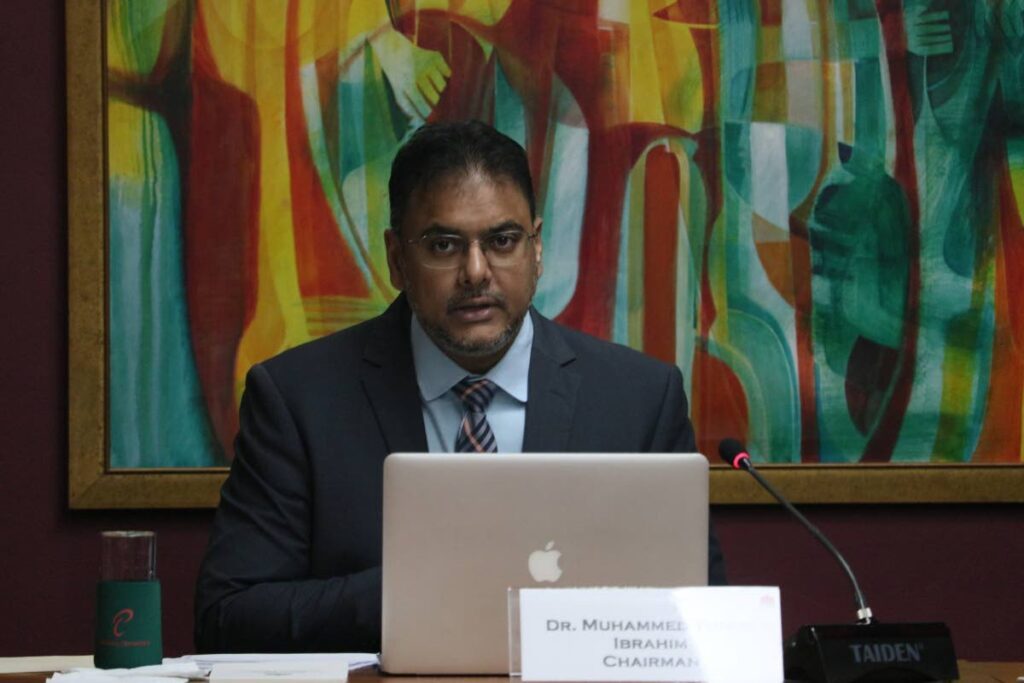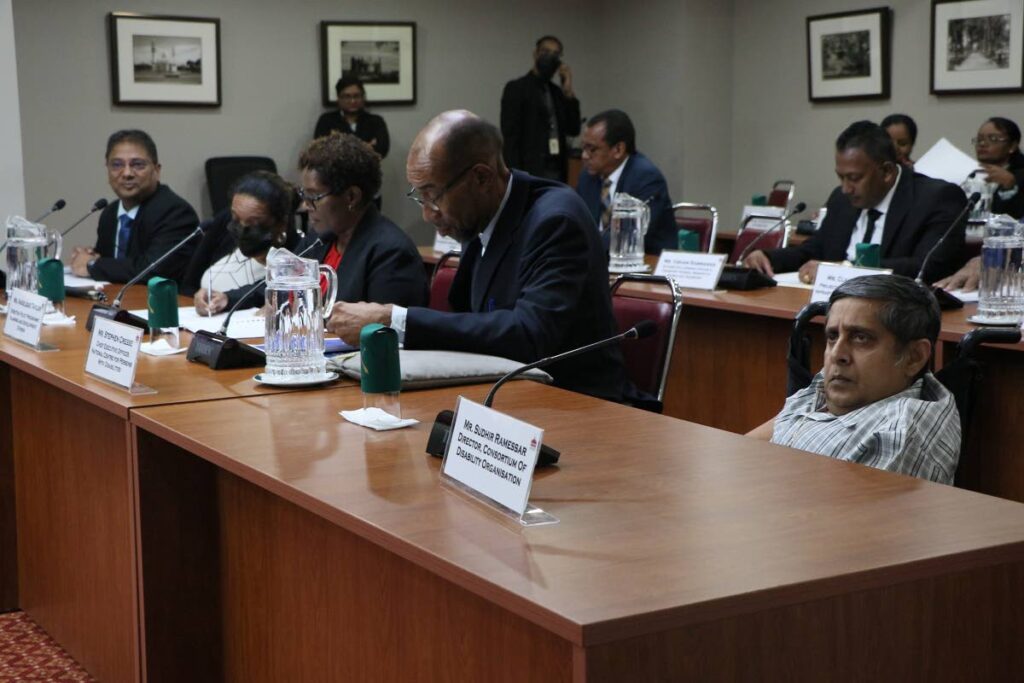JSC: State agencies feel no urgency to help disabled

AFTER two hours of questioning, chairman of a joint select committee (JSC) Dr Muhammad Ibrahim had heard enough on Friday to conclude state bodies felt no sense of urgency to implement recommendations of a 2016 report to improve the lives of people with disabilities.
On Friday the JSC on Human Rights, Equality and Diversity held a follow-up inquiry on the recommendations of the 2016 Second Report of the 11th Parliament into the challenges faced by people with disabilities, with a specific focus on access to services and employment.
Almost a third of the way through the sitting, the comments of Sudhir Ramessar, director of the Consortium of Disability Organisations, were perhaps a foreshadowing of the chairman's conclusion.
"I cannot sit here and tell you that I have seen, physically can say, 'Yes, I've seen changes in the last six years.' I am a very much independent person' so I am very much curious and really eager to find out what was and what is to blame from the members," he said.
"I live the life, and when you live the life, you must observe what is making your life easier. There (are) still difficulties in terms of accessibility to any aspect of my everyday life. So that's why I am wondering what is there that has actually been done."
He said while the country has signed on to the UN Convention on the Rights of Persons with Disabilities, there is still missing legislation to give tangible relief to the disabled. For instance, at the very least, he said he wanted building codes that ensured disabled people would be able to access services. This was also a recommendation in the 2016 report.
"The committee recommends that the National Standard TTS/ICC/ANSI A117.1, Accessible and Usable Buildings and Facilities is adopted by the Ministry of Planning and Development as an enforceable regulatory document. This would mitigate against building access challenges faced by PWDs (persons with disabilities)."
Ramessar's plea was supported by the revelation that many Ministry of Social Development and Family Services (MoSDFS) offices were not adequately equipped for disabled access. This was brought to light by Angelique Taylor, the ministry's policy programme planning and development division's director, when JSC member Anita Haynes-Alleyne questioned her.
She said four buildings had been outfitted with ramps and had toilets refurbished to make them accessible and inclusive to the disabled.
"In terms of the other buildings, they are not owned by the ministry, unfortunately, we're renting, so that we have to approach the respective landowners to do the necessary refurbishment," Taylor said.
She said there were plans to build a new head office for the ministry and to move some offices around the country, all of which will be done with accessibility in mind.
Before she asked the question of the other state bodies present, Haynes-Alleyne expressed her disinclination to do so, given that the frontline ministry in dealing with the disabled was not fully accessible.

Ministry of Rural Development and Local Government (MoRDLG), Annalean Inniss said the implementation of building codes is being held up by the partial proclamation of the Local Government Reform Act."At this point in time, most of those sections, in terms of the critical enabling sections, have not been proclaimed," she said.
She said many of the newer municipal corporations' facilities were accessible, but retrofitting older infrastructure was a challenge, as they too were in rented buildings. Another major point of concern for the committee was the Elderly and Differently-Abled Mobile Service (ELDAMO). The 2016 report provided several recommendations for improving transport, including buying more buses that are accessible for disabled people and redesigning bus stops and terminals.
Public Transportation Service Corporation (PTSC) general manager Patrick Gomez said its ELDAMO fleet, introduced in 2012, had 24 buses. He said one was damaged in an accident and 18 needed repairs.He said this service is provided in conjunction with the MoSDFS, with requests going through the ministry for bookings. Apart from this, Taylor said the PTSC gave the ministry options for expanding the service which included the MoSDFS buying buses for the corporation to operate.
JSC member Jearlean John questioned the need for the ministry to be involved in running the service, saying this was an "abdication of duty" by the PTSC.
"The transportation expert, presumably, is PTSC. Don't take on burden you don't have to take on. Let PTSC buy their buses rather than the government service. They will know, they have engineers who will know how to spec those buses and they will just tell you how many buses they have, and you don't take any calls, as far as I'm concerned.
"Let them call PTSC. Why are they calling you for? You can't give them a service. Let PTSC deliver the service that they are paid to do," John said. Patrick added that 27 buses have wheelchair ramps and the aim is to have a fleet of 210 buses out of 300 that will be similarly universally accessible. For this, he said, the corporation has a request before the Cabinet for paratransit assistants to help disabled people on the buses. He said all drivers will also need to be retrained for this.
CEO of the National Centre for Persons with Disabilities Stephen Creese said he has not had success in accessing the ELDAMO service over the last year.
"Over the past year I have, because of requests from students and trainees at the centre, sought to ascertain the status of the service.
"The last time I did so was at 9.05 this morning, and I was told that that service is not in operation at this time, and that has been the mantra for the calls I've made over this past year," he said.The PTSC chairman said he would discuss this with Creese after the sitting. Before inviting stakeholders to make closing remarks, chairman Ibrahim noted: "What we can clearly state and realise is there seems to be no sense of urgency as it applies to the fulfilment in the delivery of the 2016/2017 report." Stakeholders acknowledged there had been no significant development in implementing them but recommitted their efforts.
Also appearing before the JSC were the Ministry of Health, the Ministry of Labour, the Ministry of Works and Transport and the South West Regional Health Authority.

Comments
"JSC: State agencies feel no urgency to help disabled"